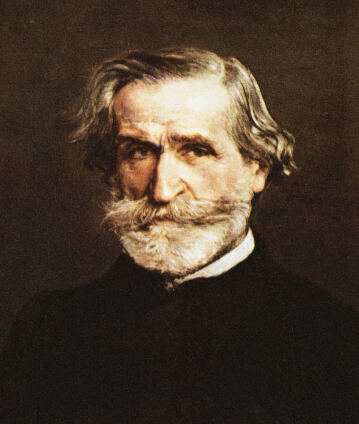Giuseppe Verdi
composer
Giuseppe Verdi has gone down in music history as the greatest Italian opera composer of the second half of the 19th century. In his 26 stage works, he set world history to music: from biblical Babylon, ancient Egypt, the Middle Ages and the Italian Renaissance, to the Spanish Baroque era and life around the French citizen-king of his time. “To copy the truth can be a good thing, but to invent the truth is better, much better.”
At the age of ten, Giuseppe Verdi became a pupil of Ferdinando Provesi, who led the Società filarmonica – an association of amateur musicians for which the budding composer soon wrote numerous marches, symphonies, concertos and sacred and secular vocal works. Antonio Barezzi, president of the Società and a wealthy patron of music, arranged for Verdi to move to Milan in 1832, where he was apprenticed to Vincenzo Lavigna, who was concertmaster and harpsichordist at La Scala. In 1842, the stupendous success of Nabucco marked the beginning of Verdi’s meteoric operatic career. In the following four years, he composed no fewer than six stage works for Italy’s leading opera houses. In March 1847, Verdi’s key work Macbeth was premiered in Florence, followed by pieces for London and Paris. After the triumphs of Rigoletto and Il trovatore, Verdi consolidated his position in Paris with Les vêpres siciliennes. The following operas were intended primarily for major foreign stages: La forza del destino for St Petersburg, the new version of Macbeth and Don Carlos for Paris, and Aida for Cairo. The opera composer then took a long creative break, during which he wrote the String Quartet and the Requiem. Then, in February 1887, Verdi’s Otello was premiered at La Scala in Milan, earning the composer Europe-wide acclaim. In 1893, the 80-year-old composer even repeated this triumph with Falstaff.